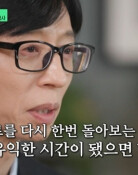Does the gov`t understand the market?
Does the gov`t understand the market?
Posted April. 11, 2011 22:15,
Eighty days after President Lee Myung-bak said he failed to understand why oil prices are too high, oil companies announced discounts on gas and diesel fuel prices. Following President Lees comment, Knowledge Economy Minister Choi Joong-kyung urged oil refineries to lower oil prices, even half-begging them to show sincerity. Fair Trade Commission Chairman Kim Dong-soo launched a probe into oil refiners alleged price fixing. Oil companies eventually yielded and lowered gas prices a bit but consumers are complaining over different discounts at gas stations. Ministers paid loyalty to President Lee but failed to ease consumers pain.
The government is now determined to curb soaring prices of individual services and processed food. It might urge related companies as it did to oil companies. Restricting individual service prices, however, will prove more difficult than asking large companies to lower prices. Though recent consumer inflation is directly affected by external factors such as import price hikes, negative effects of expansionary fiscal and monetary policy have also aggravated inflation. The government said it will put priority on price stabilization over economic growth but this comment came only after inflation fears had peaked. The presidential office, economic teams in the Cabinet and the Bank of Korea finally changed the traffic light but it is too late to make a safe U-turn.
The government unveiled measures to encourage housing transactions on March 22, but the housing market is showing no signs of recovery. The measures included resumption of the debt-to-income rule and reduction in acquisition tax. Whether the acquisition tax reduction measure will be adopted remains uncertain, however, due to resistance by provincial governments. Many households are waiting for tax cuts before making final payments and moving in into new houses. As a result, the volume of apartment transactions in Seoul more than halved in March from February, and dropped further this month. The governments role is to create an environment for a soft landing of its measures. Its inability to persuade provincial governments to lower the acquisition tax is equal to failure of policy and the government. Seoul has promoted stop-gap measures on house rentals over the past 18 months, which also demonstrates its incomplete handling of important matters.
The Cabinets economics team is devoted to carrying out President Lees policy orders, which seem very political. Ministries have put forward various measures since President Lee first stressed mutual cooperation between large and smaller companies, but these forced actions are putting a dent in the private sectors voluntary efforts for mutual cooperation. Strategy and Finance Minister Yoon Jeung-hyun is examining taxing improper transfers or inheritance by the owners of large companies to their children by giving work to their subsidiaries. Taxing illegal inheritance is necessary and something the former government failed to tackle with detailed measures.
The government has amplified conflict over land development rather than adjusting it. Someone will have to take responsibility on hikes in the benchmark interest rate and the mishandled restructuring of savings banks. Pursuing speed in achieving goals will do no good if the government fails to resolve pending issues based on market mechanisms. The outcome will only be failure and confusion.




![태국 환율 왜 이래…범죄자금 유입? 바트화 초강세 미스터리[딥다이브]](https://dimg.donga.com/c/138/175/90/1/wps/NEWS/IMAGE/2025/12/17/132987491.1.jpg)
![요양원 321곳 중 85곳 “치매발병후 기초수급자 전락 사례 있어”[히어로콘텐츠/헌트③-下]](https://dimg.donga.com/c/138/175/90/1/wps/NEWS/IMAGE/2025/12/16/132980397.1.jpg)

